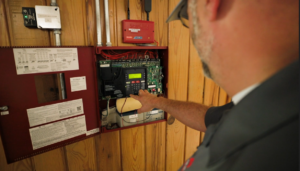Why Fire Alarm Systems Fail—and How to Prevent It
Introduction
Fire alarm systems are one of the most critical safety features in any building because they serve as early warnings that save lives and protect property. When an alarm malfunctions, it can delay emergency response, put lives at risk, and increase liability for building owners. You might ask yourself, “What happens when these systems don’t work like they should?” Understanding why fire alarm systems fail—and how to prevent them—is key to protecting your property and people from fire threats.
Common Reasons Fire Alarm Systems Fail
Lack of Regular Maintenance and Inspections:
Even the most advanced fire alarm systems require routine care to function properly. When inspections are skipped or maintenance is delayed, minor issues can go undetected until they cause a complete system failure.
Battery or Power Supply Issues:
If your backup batteries are drained or the power supply is disrupted, your fire alarm system may not activate during an emergency. Regular checks are critical to avoid this hidden vulnerability.
Faulty or Outdated Equipment:
Technology evolves, and as a result, so do safety standards. Old equipment may no longer meet current codes or may be prone to malfunctions. Outdated detection devices can also struggle to sense smoke or heat effectively.
Environmental Factors:
Dust, debris, humidity, and extreme temperatures can all interfere with sensor readings. Over time, this environmental buildup causes detectors to give false alarms—or worse, fail to detect a real fire when it matters most.
Human Error or Tampering:
Improper use of the system, accidental damage, or even intentional tampering can disrupt regular operation. Staff and residents who are not trained can unintentionally disable key components without realizing it.
Prevention Strategies
The first step in preventing fire alarm malfunctions is maintaining a consistent maintenance schedule. Regular testing and inspections identify problems early on and help make sure the alarms are ready to go. Companies should upgrade outdated equipment to meet modern standards, ensuring more accurate detection and compliance with fire codes. Most importantly, professional servicing from certified fire safety experts provides the highest level of protection.
Conclusion
A fire alarm system is only as reliable as the care it receives, which is why regular inspections, timely upgrades, and professional servicing are essential for keeping your system ready to go. Far too often, people wait for a system failure to highlight the importance of proactive maintenance. Don’t let that be you.




